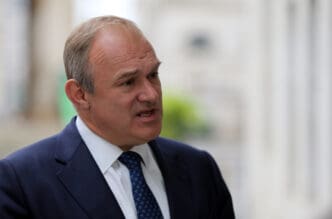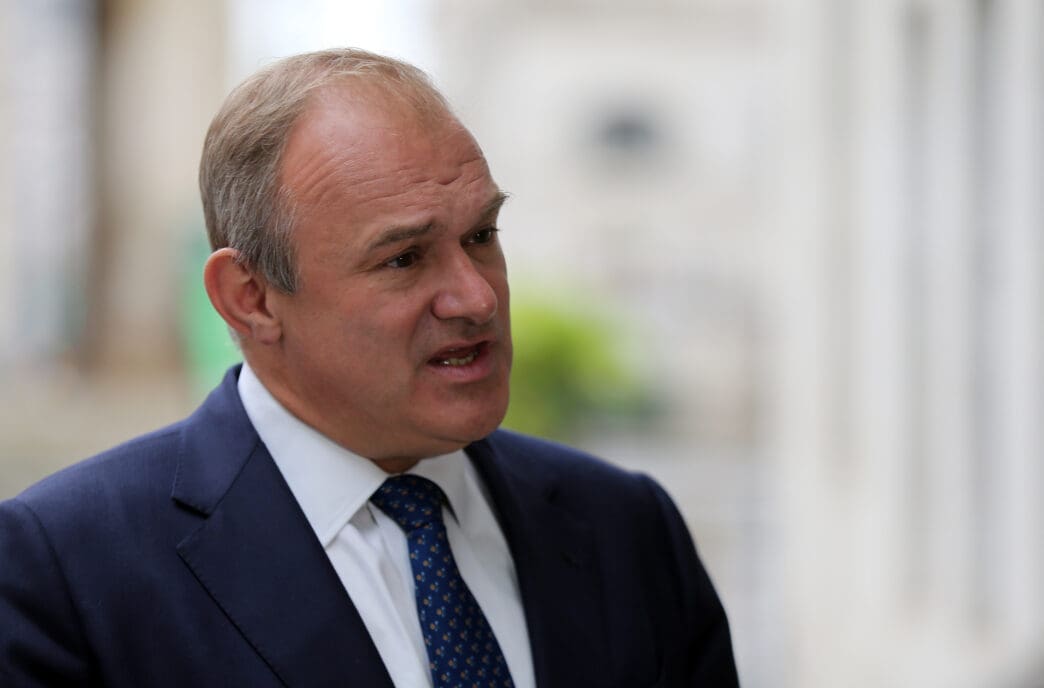Executive Summary
- Liberal Democrat leader Sir Ed Davey publicly demanded an apology from Reform UK leader Nigel Farage, blaming Brexit and the loss of EU return agreements for exacerbating the UK’s small boat crisis.
- Sir Ed Davey specifically attributed the increase in Channel crossings to the abrogation of the Dublin Agreement and 27 other return agreements post-Brexit, which he claims created a “magnet” effect.
- Critics, including Shadow Home Secretary Chris Philp, dispute Davey’s claims, arguing the Dublin Agreement was flawed and ineffective, citing official figures showing a 7% success rate for UK outgoing transfer requests from 2015-2018.
The Story So Far
- The ongoing debate about the UK’s small boat crisis is primarily framed by the consequences of Brexit, with Liberal Democrats attributing the issue to the abrogation of the Dublin Agreement and other EU return agreements. They contend that the loss of these mechanisms, which previously facilitated the return of asylum seekers to their initial European entry point, has created a “magnet” effect, directly contributing to increased Channel crossings and the current challenges, while critics argue the previous agreements were largely ineffective.
Why This Matters
- The Liberal Democrats are intensifying the political debate by directly linking the UK’s small boat crisis to Brexit, attributing it to the loss of EU return agreements, and are pushing to reframe the issue as “Brexit boats.” This strategy aims to shift public perception and accountability towards Brexit proponents like Nigel Farage, potentially making immigration a more central and contentious issue in upcoming political campaigns, despite counter-arguments about the pre-Brexit agreements’ limited effectiveness.
Who Thinks What?
- Liberal Democrat leader Sir Ed Davey contends that Brexit, championed by Nigel Farage and Boris Johnson, directly caused the UK’s small boat crisis by “tearing up” the Dublin Agreement and 27 return agreements with EU countries, thereby undermining the UK’s ability to manage asylum claims effectively.
- Critics, including Shadow Home Secretary Chris Philp, argue that the Dublin Agreement was flawed and ineffective, and that blaming Brexit for the current issues is “rewriting history,” citing official figures that show a low success rate for the UK under the agreement.
Liberal Democrat leader Sir Ed Davey has publicly demanded that Reform UK leader Nigel Farage apologize for his alleged role in exacerbating the UK’s small boat crisis, attributing the issue to the loss of valuable return agreements with European Union countries post-Brexit. Speaking at his party’s conference in Bournemouth, Sir Ed contended that the departure from the EU undermined the UK’s ability to manage asylum claims effectively.
Brexit’s Impact on Asylum Returns
Sir Ed Davey specifically pointed to the abrogation of the Dublin Agreement, an EU system that allowed asylum seekers to be returned to the first European country they entered. He argued that the loss of these 27 return agreements, which he claims existed before Brexit, created a “magnet” effect, leading to an increase in Channel crossings.
The Liberal Democrat leader asserted that the actions of Nigel Farage, along with former Prime Minister Boris Johnson and the Conservative Party, directly contributed to this problem by “tearing up” these agreements. He called for Farage to be “exposed for his failures” regarding his contributions to the small boat crisis.
“Brexit Boats” Term Proposed
The demand for an apology followed a fringe event at the Liberal Democrat conference, where delegates discussed renaming small boats crossing the Channel as “Brexit boats.” A delegate from the Mole Valley Liberal Democrats group suggested this term as a soundbite to directly link the current situation to the UK’s departure from the EU.
Liberal Democrat peer Lord Mike German supported the suggestion, noting its connection to the Dublin Agreement, from which the UK was “extinguished” after leaving the European Union.
Criticism and Counter-Arguments
However, Sir Ed Davey’s claims have faced criticism, with opponents arguing that the Dublin Agreement was inherently flawed and would not have resolved the current issues. Shadow Home Secretary Chris Philp accused the Liberal Democrat leader of “rewriting history.”
Official figures from 2015 to 2018 indicate a limited success rate for the UK under the Dublin Agreement. During this period, the UK made 18,953 requests to transfer individuals to other member states, but only 1,395 transfers were completed, representing approximately 7% of outgoing requests.
Conversely, 7,365 incoming requests were made to transfer people into the UK, with 2,365 of these requests being granted in the same timeframe.
Key Takeaways
The ongoing debate underscores significant political contention surrounding the long-term consequences of Brexit on the UK’s immigration and asylum policies. Different political factions hold contrasting views on the effectiveness of pre-Brexit agreements and the accountability for current challenges related to Channel crossings.








